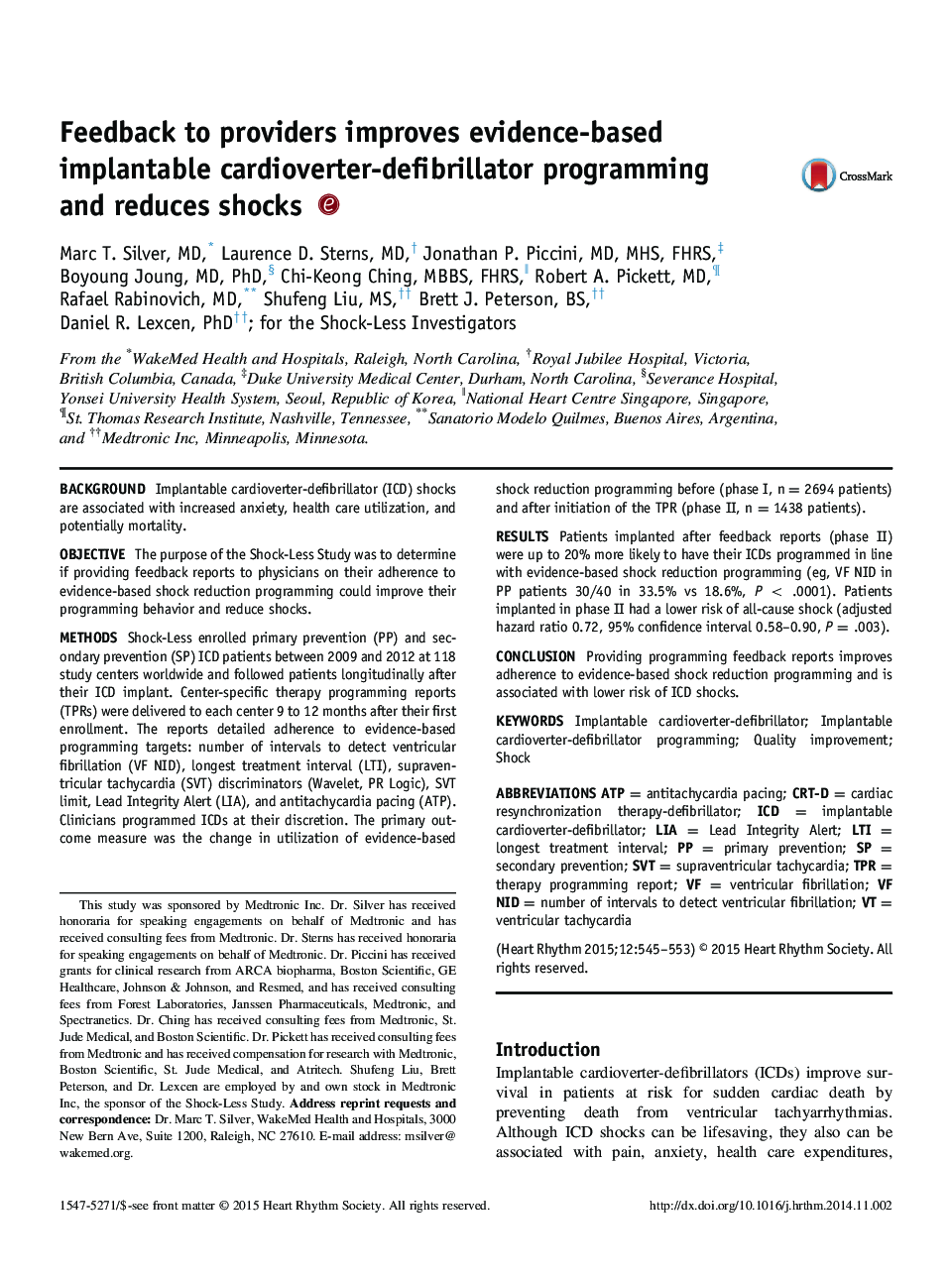| کد مقاله | کد نشریه | سال انتشار | مقاله انگلیسی | نسخه تمام متن |
|---|---|---|---|---|
| 2921879 | 1175808 | 2015 | 9 صفحه PDF | دانلود رایگان |
BackgroundImplantable cardioverter-defibrillator (ICD) shocks are associated with increased anxiety, health care utilization, and potentially mortality.ObjectiveThe purpose of the Shock-Less Study was to determine if providing feedback reports to physicians on their adherence to evidence-based shock reduction programming could improve their programming behavior and reduce shocks.MethodsShock-Less enrolled primary prevention (PP) and secondary prevention (SP) ICD patients between 2009 and 2012 at 118 study centers worldwide and followed patients longitudinally after their ICD implant. Center-specific therapy programming reports (TPRs) were delivered to each center 9 to 12 months after their first enrollment. The reports detailed adherence to evidence-based programming targets: number of intervals to detect ventricular fibrillation (VF NID), longest treatment interval (LTI), supraventricular tachycardia (SVT) discriminators (Wavelet, PR Logic), SVT limit, Lead Integrity Alert (LIA), and antitachycardia pacing (ATP). Clinicians programmed ICDs at their discretion. The primary outcome measure was the change in utilization of evidence-based shock reduction programming before (phase I, n = 2694 patients) and after initiation of the TPR (phase II, n = 1438 patients).ResultsPatients implanted after feedback reports (phase II) were up to 20% more likely to have their ICDs programmed in line with evidence-based shock reduction programming (eg, VF NID in PP patients 30/40 in 33.5% vs 18.6%, P < .0001). Patients implanted in phase II had a lower risk of all-cause shock (adjusted hazard ratio 0.72, 95% confidence interval 0.58–0.90, P = .003).ConclusionProviding programming feedback reports improves adherence to evidence-based shock reduction programming and is associated with lower risk of ICD shocks.
Journal: Heart Rhythm - Volume 12, Issue 3, March 2015, Pages 545–553
